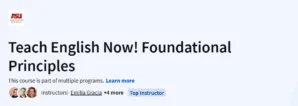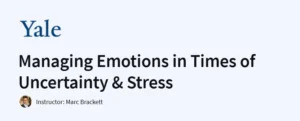What you will learn in Moral Foundations of Politics Course
- Enlightenment Political Theory: Examine the legitimacy of governments through the lens of Enlightenment thinkers like Hobbes, Locke, and Rousseau, and their influence on modern political thought.
- Utilitarianism: Explore classical and neoclassical utilitarianism, focusing on the greatest happiness principle and its application in contemporary politics.
- Marxism: Analyze Marx’s critique of capitalism, the theory of exploitation, and the legacy of Marxist thought in modern political discourse.
- Social Contract Tradition: Delve into the theories of consent and justice as proposed by Hobbes, Locke, Kant, and Rawls, and their relevance to current political structures.
- Anti-Enlightenment Thought: Understand critiques of Enlightenment ideals, including perspectives from figures like Edmund Burke and contemporary communitarians.
- Democratic Politics: Investigate the foundations of democratic governance, the concept of legitimacy, and the challenges faced by modern democracies.
Program Overview
Introduction to Political Philosophy
⏳ 3 weeks (14 hours per week)
Overview of key political philosophers and their influence on contemporary political systems.
Utilitarianism and Social Justice
⏳ 3 weeks (14 hours per week)
Deep dive into utilitarianism and its role in shaping policies aimed at maximizing overall happiness.
Marxism and the Critique of Capitalism
⏳ 3 weeks (14 hours per week)
Explore Marx’s theory of class, exploitation, and the vision of a classless society.
The Social Contract and Justice
⏳ 3 weeks (14 hours per week)
Study the social contract theory as it applies to modern political philosophy, with focus on consent, fairness, and equality.
The Anti-Enlightenment Critique
⏳ 3 weeks (14 hours per week)
Examine critiques of Enlightenment principles, including the arguments posed by figures like Edmund Burke.
Modern Democracy and Legitimacy
⏳ 3 weeks (14 hours per week)
Understand the theory of democracy and the concept of legitimacy in modern political systems.
Get certificate
Job Outlook
- Proficiency in Political Theory is valuable for roles such as:
- Political Scientist
- Policy Analyst
- Public Affairs Specialist
- Academic in Political Science
- Skills acquired in this course are applicable across sectors like government, international organizations, NGOs, and think tanks.
- Completing this course provides a foundation for deeper studies in political philosophy and helps in critical roles related to public policy, political strategy, and governance.
Specification: Moral Foundations of Politics
|
FAQs
- No prior knowledge is required; the course starts with foundational concepts.
- Introduces ethical frameworks and philosophical ideas in politics.
- Provides examples to help beginners understand complex theories.
- Encourages critical thinking regardless of prior experience.
- Yes, it provides tools to analyze contemporary political issues.
- Helps identify moral and ethical arguments behind policies.
- Encourages applying theory to debates on justice, equality, and governance.
- Enhances your ability to critically evaluate political arguments in media and discussions.
- The course covers both domestic and international political frameworks.
- Discusses universal moral principles as well as culturally specific contexts.
- Encourages comparative thinking across countries and political systems.
- Helps learners understand global political ethics and dilemmas.
- Yes, foundational knowledge of political ethics supports law and policy careers.
- Provides critical thinking skills for evaluating policy decisions.
- Helps in understanding moral arguments behind legislation and governance.
- Useful for careers in public administration, law, and international organizations.
- Yes, it introduces debates on ethics, justice, and moral dilemmas in politics.
- Encourages open-minded discussion and critical reasoning.
- Provides guidance on analyzing differing viewpoints respectfully.
- Prepares learners to engage thoughtfully in academic or professional discussions on politics.





